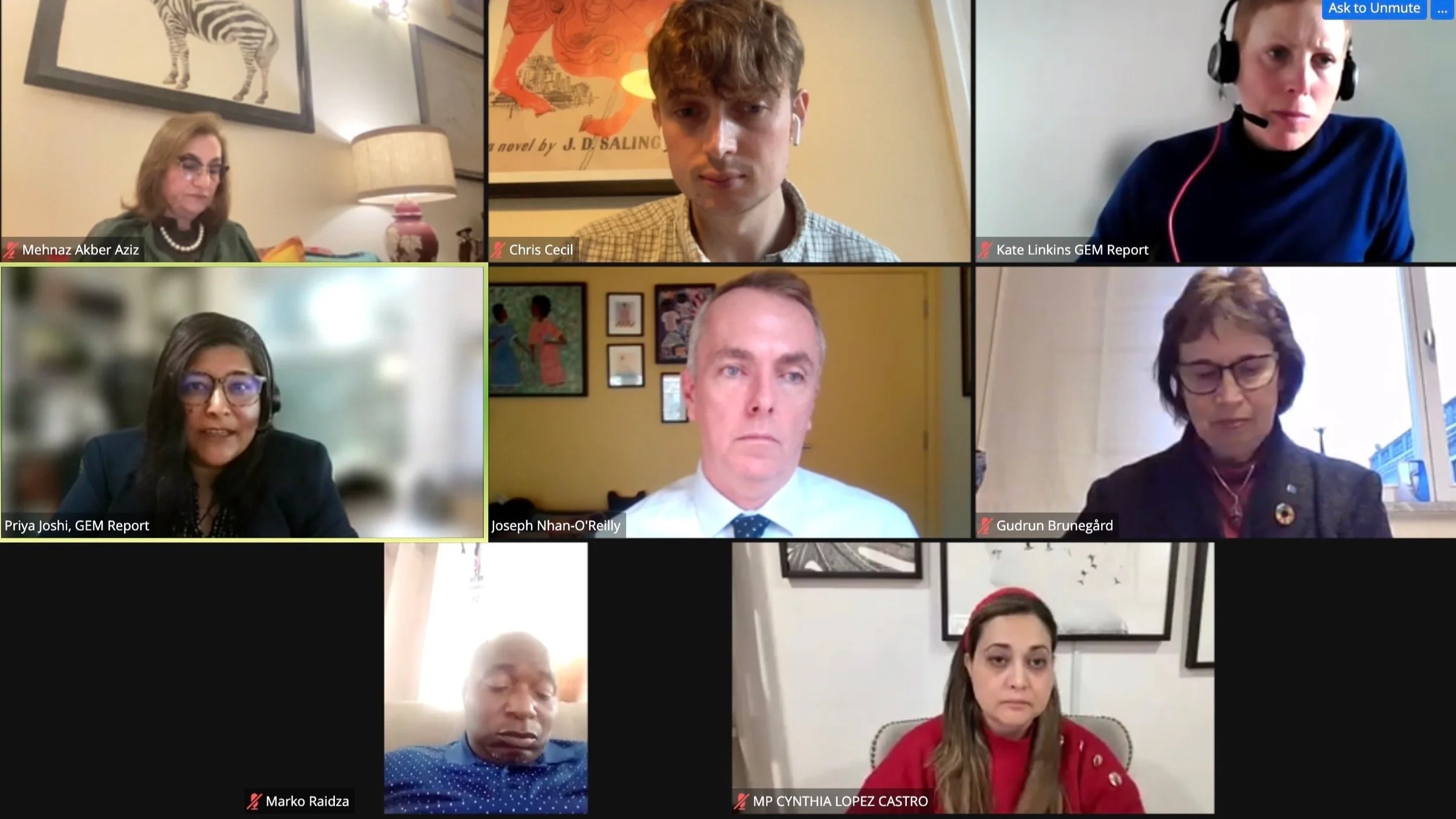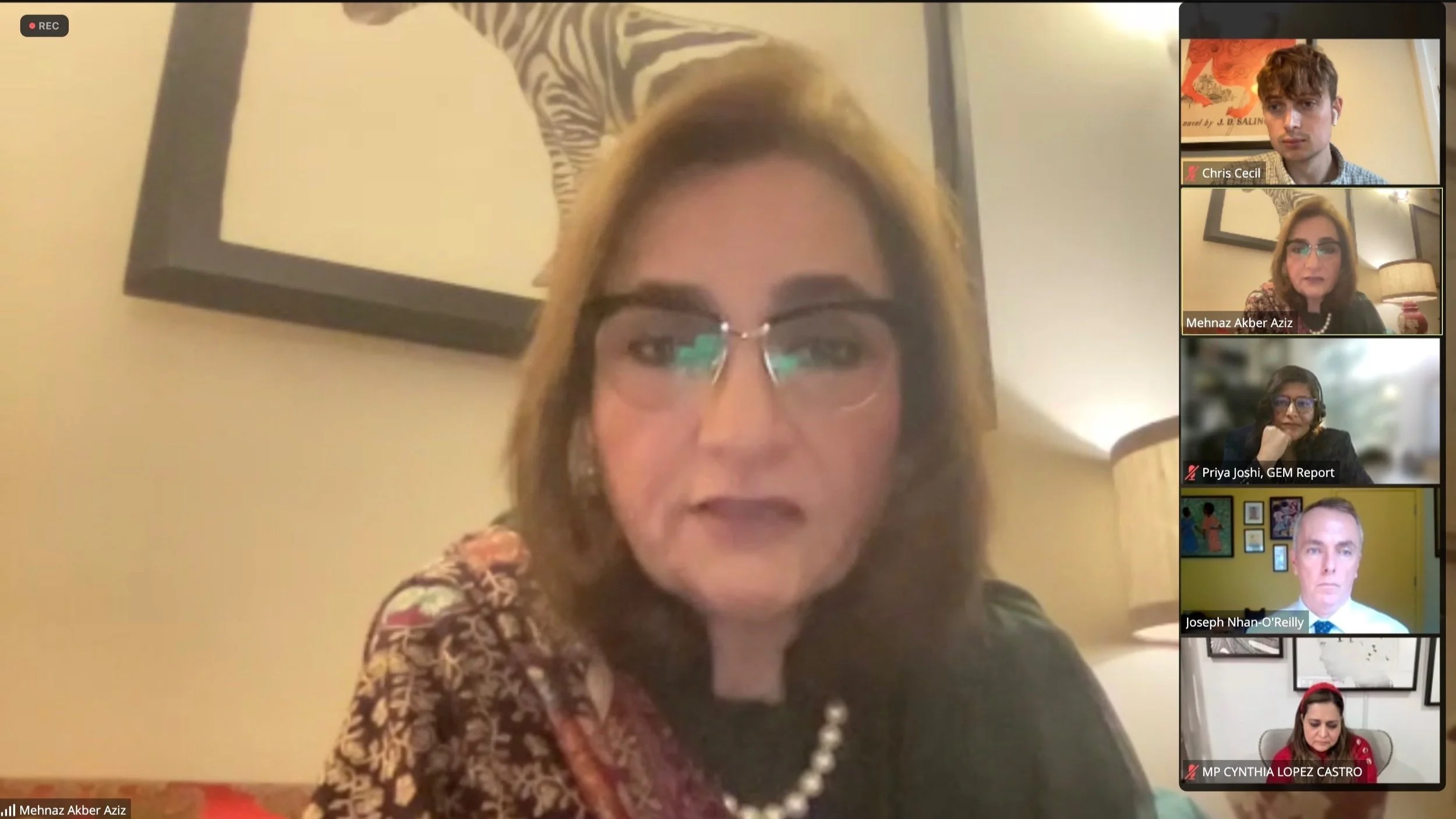What makes for good political leadership of education?
Writing for the UNESCO Global Education Monitoring Report Professor David Gurr argues that leadership is at the heart of quality education - second only to teaching as the most important factor influencing learning outcomes.
Leaders at multiple levels matter, from those within the school, to those outside of the school, and even those outside of education systems.
The UNESCO Global Education monitoring Report will be shining a light on leadership and education in their 2024 report.
Parliamentary Consultation on Political Leadership for Education
To help inform the report IPNEd hosted a consultation with members of parliament from around the world.
Parliamentarians, as policy makers, are amongst the key political leaders in education and have critical and unique responsibilities in driving through change in the field. Members of parliament exercise education leadership by legislating, shaping public finances, scrutinising the actions of their government, advocating for causes and representing their constituents.
MPs from Afghanistan, Chad, Indonesia, Mexico, Nepal, Pakistan, Sweden, Tanzania and Zimbabwe discussed shared examples of leadership exercised by parliamentarians, challenges they face in driving through change in education along with suggestions about how they and their parliament could be more effective in exercising positive leadership for education.
The members highlighted the following key observations in regards to political leadership for education; the importance of parliamentarians working together, MPs having access to key information on education and that members of parliament understand the benefits of education extend beyond the classroom.
IPNEd Co-Chair and former member of the National Assembly of Pakistan, Mehnaz Akber Aziz explained how vital it is to work cross-party on education. Immediate past IPU President, Cynthia López Castro of Mexico set out the benefits of global parliamentary networks in supporting MPs to engage with and learn from parliamentarians outside their country.
Member of Parliament from Zimbabwe, Marko Raidza, Member of Parliament from Chad, Issa Mardo Djabir and Member of Parliament from Tanzania Faustine Ndugulile highlighted the need for parliamentarians to have access to key information on budgets, policy options and stakeholders to work with, in ensuring parliamentarians can execute effective political leadership on education.
Gudrun Brunegård, Swedish MP and Shinkai Karokhail, a former Member of Parliament for Afghanistan explained how critical it is for parliamentarians to understand and convey that the benefits from education go beyond the classroom and are tools to fight poverty, hunger and inequalities.
UNESCO GEM Report
Ultimately, the message was clear, political leadership plays a key role in improving education systems and provisions around the world. Yet, there are many steps which can be taken to improve the understanding and ability of parliamentarians to execute political leadership on education. At IPNEd, we’re delighted that the UNESCO Global Education Monitoring team is completing their next report on this crucial topic, which will provide extensive research and recommendations for improvement. Please find out more on their website; unesco.org/gem-report/en


